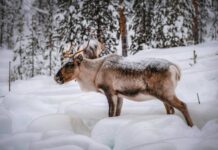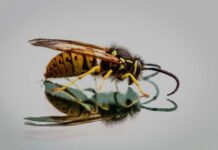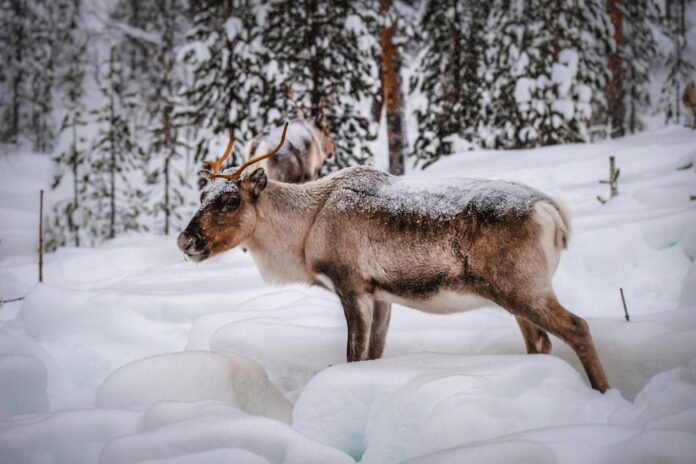The ongoing climate crisis has forced many species to change their habits in order to survive. Yet changes in the delicate balances of our ecosystems often have far-reaching — and sometimes unwelcome — consequences. This is the focus of a new study led by researchers at the University of British Columbia’s Okanagan campus published in Global Change Biology.
Using data from 300 wildlife cameras obtained over the course of five years, the study investigated how white-tailed deer populations in North America have expanded their range over the past century. In particular, the researchers found that changing climates — as well as increased human activity — have caused these deer to travel farther north into the boreal forests of Western Canada.
While these areas may be better-suited to the white-tailed deer population in today’s climate, their presence comes at a cost to species already inhabiting the area. The researchers show that an increase in the density of white-tailed deer was linked to a decrease in the numbers of woodland caribou — a species which is already endangered in Northern Canada.
This decline, the researchers explain, is due to the fact that where white-tailed deer go, wolves tend to follow. And while the white-tailed deer populations are used to this predator-prey relationship, woodland caribou populations are not.
“The expansion of white-tailed deer into the boreal forest has been linked to caribou declines,” said Melanie Dickie, a doctoral student at UBC Okanagan’s Wildlife Restoration Ecology Lab and corresponding author of the study, in a news release.
“Deer are ecosystem disruptors in the northern boreal forests. Areas with more deer typically have more wolves, and these wolves are predators of caribou — a species under threat. Deer can handle high predation rates, but caribou cannot.”
These results shed light on the complicated implications that climate change can have on our environment. Changes in one species’ behaviour can in turn affect many other species, putting endangered populations at an even greater risk.
The authors conclude by explaining the importance of continued monitoring of these and other species. Understanding how their habits are changing over time will allow us to develop preservation strategies that allow all species to thrive.







































